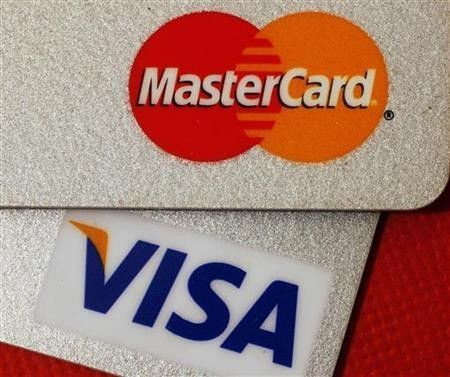US credit card debt soaring to unsustainable levels, says study

The credit card debt levels in the United States are soaring to unsustainable levels, according to CardHub, a financial website that studies credit card debt. It estimated that credit card debt levels will increase by another US$60 billion (AU$84.13 billion) by the end of 2015 and take the total U.S. credit card debt, close to US$900 billion, the level where unsustainability sets in.
“We erased almost all of our first-quarter pay down, racking up a whopping US$32.1 billion (AU$44 billion) in new balances from April through June, the largest second quarter binge since conducting the Credit Card Debt Study in 2009,” CardHub told Financial Advisor.
Data obtained from CardHub showed that the average indebted household's balance will reach US$7,813 (AU$1.09 billion) by the end of 2015, just US$615 (AU$861) below the balance at which delinquencies will start zooming, Business Insider reported.
Texas pays late
Meanwhile, another study that analysed trends in credit card payments in various U.S. cities noted that Texas cities are taking more time to pay off a credit card debt, according to CreditCards.com.
The study compiled information from 25 largest metropolitan areas in the U.S. and found three Texas cities in the top five league of places that take the longest time to pay off credit card debt.
The study, calculated the payoff time by assuming that 15 percent of the median income goes into paying credit card debt. On an average, 15 percent is considered a benchmark by credit counselors in determining the reasonable ability to repay a debt.
The Texas city with the longest average payback time was San Antonio with its 16-month payback period, while Dallas-Fort Worth came second with a 14 -month payback period, and Houston was fifth with its 13-month payback period. Other cities in the top five included Miami-Fort Lauderdale and Atlanta, both with 14-month payback periods.
On the other hand, cities by the Bay stood out with the shortest average payback period. San Francisco-Oakland-San Jose area had a nine-month payback period, Boston and Washington D.C. came second with their 10-month payback period.
Chip and pin card
Meanwhile, by 2016, some 167 million U.S. residents holding credit cards will be receiving their brand new “EMV” or “chip-and-PIN” cards, carrying embedded microchips for enhanced security.
However, the change will force credit card companies to spend millions more in producing the cards. Businesses will be required to buy new readers for accommodating the cards. For customers, the burden will be the little extra time during checkout.
Chris Damron, senior vice president of sales from Digital Financial Group in Peoria, said the new cards will contain a security chip that generates a unique code and protect the cards from fraudsters who steal information.
For feedback/comments, contact the writer at feedback@ibtimes.com.au or let us know what you think below.





















